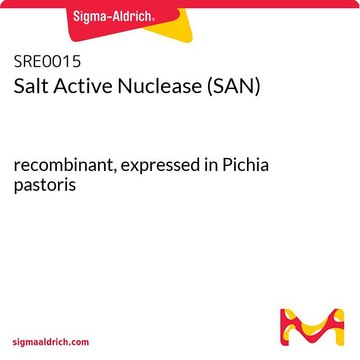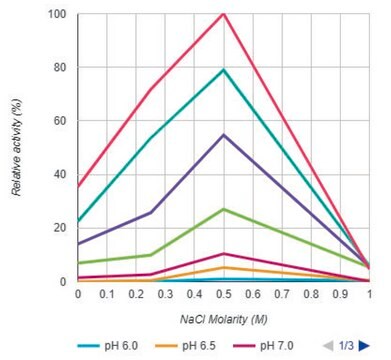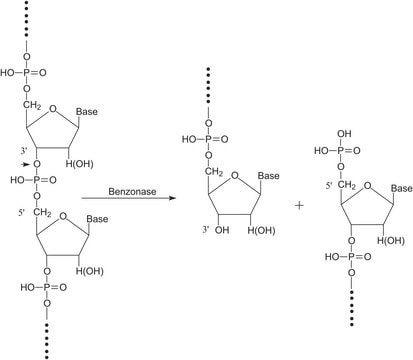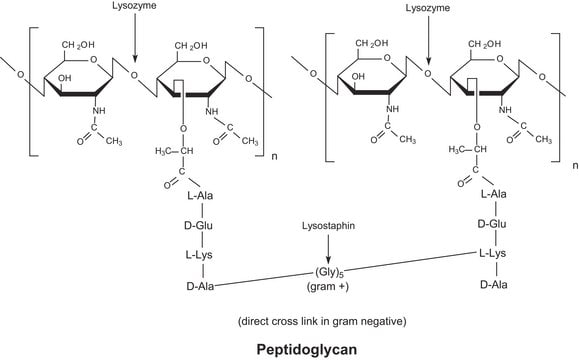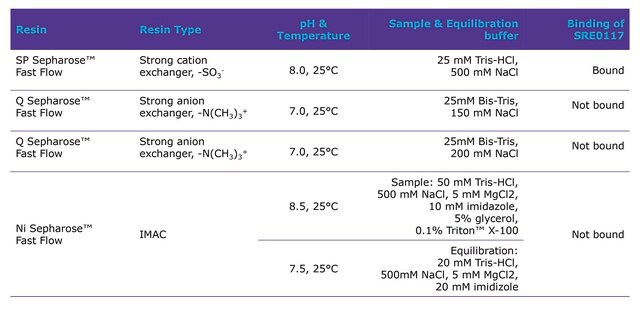SRE0116
Salt Active Nuclease (SAN)
recombinant, expressed in Pichia pastoris, Triton-free
Synonym(s):
endonuclease, recombinant nuclease, salt active endonuclease, salt tolerant nuclease
Sign Into View Organizational & Contract Pricing
All Photos(2)
About This Item
UNSPSC Code:
12352204
NACRES:
NA.77
Recommended Products
recombinant
expressed in Pichia pastoris
Quality Level
composition
Triton-free
packaging
pkg of 25 kU
shipped in
dry ice
storage temp.
−20°C
Looking for similar products? Visit Product Comparison Guide
General description
This Salt Active Nuclease (SAN) has been developed to offer the optimal solution for removal of nucleic acids at the near-physiological conditions used in many bioprocessing and biomanufacturing workflows. This novel, nonspecific endonuclease is active over a broad pH range and displays optimum activity at salt concentrations around 175 mM. It is recombinantly expressed in Pichia pastoris.
Application
- Can be used directly in cell medium or harvested supernatant without buffer adjustments
- Ideal for DNA removal directly in mammalian cell media
Features and Benefits
- Active at physiological conditions
- Endotoxin tested Animal origin free without buffer adjustments.
Unit Definition
One unit is defined as the amount of enzyme that causes a ΔA260 = 1.0 in 30 minutes at 37 °C in 25 mM Tris-HCl pH 7.6 (@25 °C), 2.5 mM MgCl2, 150 mM NaCl, and 50 μg/ml calf thymus DNA. 25 mM Tris-HCl pH 7.6 (@25 °C), 2.5 mM MgCl2, 150 mM NaCl, and 50 μg/ml calf thymus DNA
Reconstitution
In solution
Other Notes
- Temperature: 25 – 50 °C
- Salt concentration (NaCl): 50 – 400 mM, optimal: 125 – 250 mM
- Mg2+: > 0.5 mM is required for activity, optimal: 4 - 15 mM
- pH: 6.5 – 9.5, optimal: 7.2 - 8.7
- Not recommended to use in presence of EDTA or urea.
Storage Class
12 - Non Combustible Liquids
wgk_germany
WGK 1
flash_point_f
Not applicable
flash_point_c
Not applicable
Certificates of Analysis (COA)
Search for Certificates of Analysis (COA) by entering the products Lot/Batch Number. Lot and Batch Numbers can be found on a product’s label following the words ‘Lot’ or ‘Batch’.
Already Own This Product?
Find documentation for the products that you have recently purchased in the Document Library.
Our team of scientists has experience in all areas of research including Life Science, Material Science, Chemical Synthesis, Chromatography, Analytical and many others.
Contact Technical Service